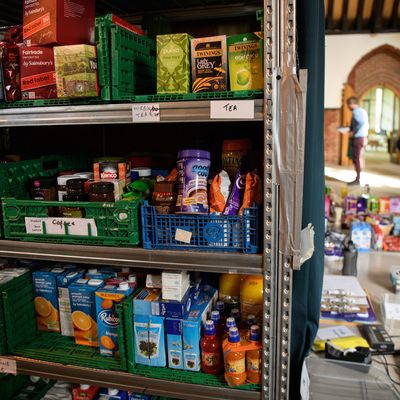
One thing seems clear following President Trump’s remarks on Wednesday about how his administration is handling the coronavirus pandemic: A lot of us are basically on our own. He gave no guidance about how to get tested, which will be crucial for determining how widespread the virus is and what institutional measures need to be taken to combat it. He mentioned nothing about avoiding public gatherings, a key vector for transmission. His primary countermeasure was to ban travel to Europe for 30 days — except to the U.K., for no clear reason. Meanwhile, that country has seen more coronavirus cases than many that are included in the ban; its own health minister recently tested positive.
As such, precautionary measures that might decelerate local outbreaks in the coming weeks remain largely at the discretion of everyday Americans. Some whose jobs allow for it have responded by voluntarily working from home. Others have had the choice made for them: their workplaces have closed down and gigs have dried up. Those who have children face the added dilemma of whether or not to withdraw them from school. More still have been forced to do so by schools shutting down, either in response to active coronavirus cases or preemptively to reduce the likelihood that they occur.
The latter circumstances present a crisis for families who rely on free or reduced-price school meals to feed their children. The problem is straightforward: Without school, their kids often don’t eat. This phenomenon has been examined at some length in recent weeks in the media, but the broad strokes are that close to 30 million children use the National School Lunch Program each year. Many of them face droughts similar to what prolonged closures or quarantines seem likely to produce when school lets out for the summer or extended breaks. In lieu of consistent school or home meals, these gaps are often filled by food aid non-profits and community food banks. And such places rely on donations to function. If you have the means, by all means, you should give to them now.
Though canned food drives loom large in the charitable imagination, the most effective way to give to food banks is actually financially, not by donating your pantry leftovers or whatever you can stock up on at Costco. Food banks typically have special arrangements with wholesalers that allow them to purchase goods at a discount. The Atlanta Community Food Bank can provide enough food for four meals with a $1 donation, for example, according to its website. And recent efforts to enhance the nutritional content of the foods that such banks offer is trending away from processed non-perishables. In response to developing reputations as dumping grounds for junk food that’s then consumed disproportionately by poor people, contributing to all manner of health crises and disparities, organizations like Feeding America have committed to offering more fresh produce at their affiliated pantries — an effort that donation dollars help more than pre-packaged offerings do.
The dire straits in which so many families are likely to find themselves should coronavirus spread more widely is apparent today in many supermarkets and corner grocery stores. Where many Americans have the means to shop and stockpile in case of quarantines, food bank administrators are expecting upticks in demand from those who don’t. “Now is the time for preparation before the virus even arrives here,” Tina Postel, executive director at the Charlotte, North Carolina-based food aid non-profit Loaves and Fishes, told WBTV this week. (There are no confirmed coronavirus cases in Charlotte.) This is true for homeless populations as well as those for whom school closures would cut off access to some of their only reliable meals. When resources get tight, people without means tend to get squeezed the hardest. The ravages of our country’s sieve-like social safety net already seem likely to make effective health care treatment prohibitively expensive for millions of people as coronavirus runs its course. But while charity is a poor substitute, the immediate impact of placing free food in someone’s hands is undeniable. Donating to a food bank might be a small gesture. But it’ll help somebody who needs it.
We’re committed to keeping our readers informed.
We’ve removed our paywall from essential coronavirus news stories. Become a subscriber to support our journalists. Subscribe now.






























